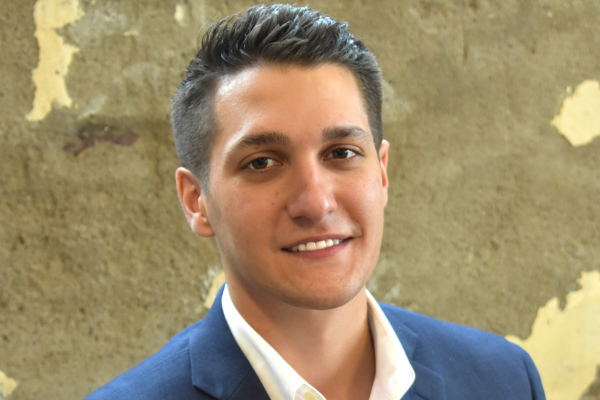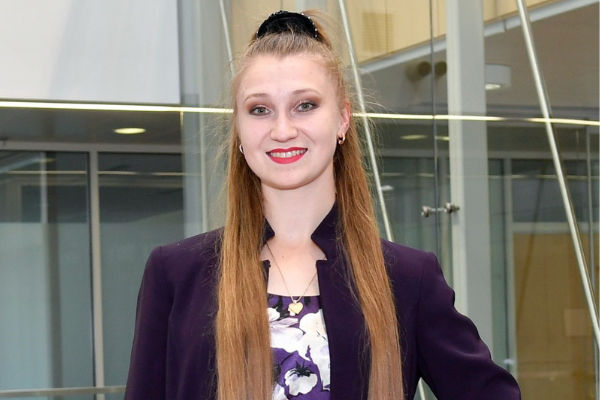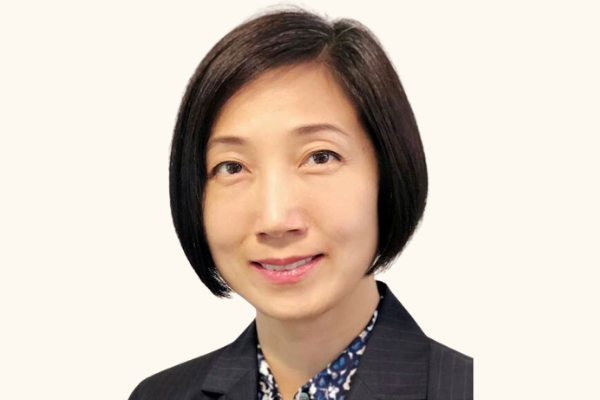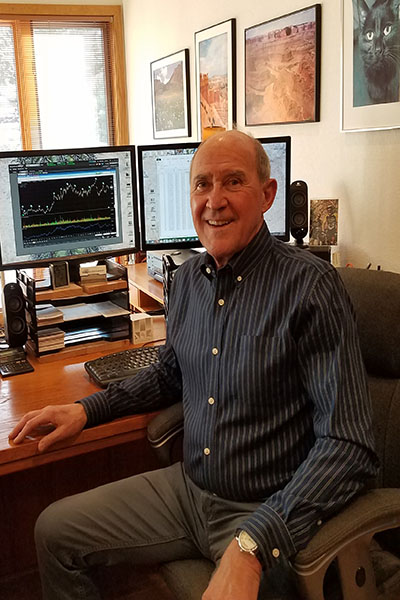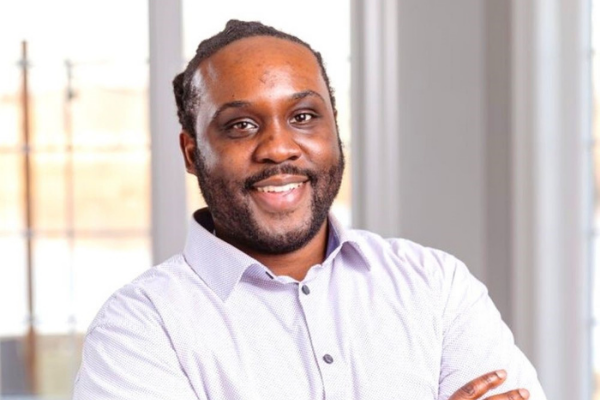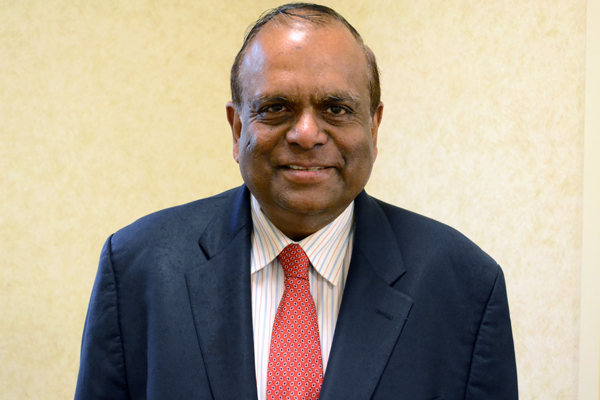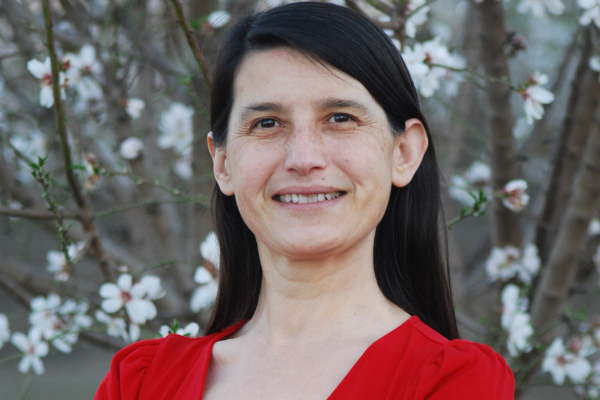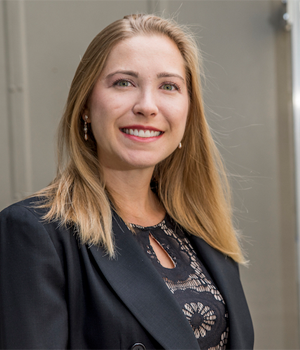
Dr. Brenna Teigler is the Chief Fellowship Officer at Activate and manages entrepreneurial research fellowships from selection to graduation across all programs Activate supports. One of those programs is Cyclotron Road at Lawrence Berkeley National Laboratory where she was the Program Operations Manager for 1.5 years. Prior to Cyclotron Road, she was an American Association for the Advancement of Science (AAAS) Science and Technology Policy Fellow at the U.S. Department of Energy (DOE). At DOE she worked on the Clean Energy Manufacturing Initiative and Technology to Market teams. Teigler has a PhD in Biophysics from Harvard and BS in Physics from Rutgers, the State University of New Jersey.
What is Activate?
Activate is a non-profit that provides fellowships to early-stage entrepreneurial scientists and engineers to transform their research into hardware-based products and businesses—think new, clean energy systems, computer chips, and sensors that leverage the latest material science innovations, and advanced, low-carbon manufacturing or industrial processing pathways.
We support these very early-stage founders at a crucial time: just when they are building the foundation of a company. That support includes a generous living stipend, plus $100,000 in research funds, and—this is super important—education and mentorship. Our fellows come to us with a lot of academic or industry experience and they know a tremendous amount about their technical discipline, but need intensive guidance in how to build a startup—especially because the time and capital requirements of hardware-based innovations are so extreme.
Since we are a nonprofit, we don’t take any equity in the startups that fellows launch, and we partner with research institutions to provide lab space where they can take their innovations from concept to prototype. That access to top-tier lab space can be vital for hard-tech startups. I’m sure most of the chemists and chemical engineers in ACS, for example, couldn’t fathom developing new products without access to labs that match or rival their existing space.
Activate was launched in 2015 in order to support and grow a program of Lawrence Berkeley National Laboratory called Cyclotron Road—which has since become a division of Berkeley Lab. Activate supports fellows in Cyclotron Road, and last year we added a second location: Activate Boston. There, fellows work out of MIT Lincoln Laboratory and other research centers around the vibrant Boston ecosystem. In both the Bay Area and Boston, proximity to large and active innovation ecosystems and large networks of investors is key to helping fellows get traction and make key connections. Thus far, the fellows we’ve supported (56 to date working at Berkeley Lab’s Cyclotron Road and we just brought on another 28 fellows in Cohort 2020, half of whom are located at Cyclotron Road and half of whom are located at Activate Boston) have done some really notable things, like breaking world records, creating new market categories, and raising a collective $170 million in funding to scale their companies.
Which qualities or skills do you look for when you recruit fellows?
It is important to highlight that we select people—not businesses—for the fellowship, and filter based on whether the impact they will achieve with their technology matches the mission areas of our sponsors. Our archetype is someone who is clearly an expert in their technical field of study, and also has the potential to be a great entrepreneur. We look for someone who has proven themselves to be a strong technical leader, in terms of safety—a key element for our laboratory hosts and partners—but also in terms of taking an innovative, collaborative approach to advancing their tech. But that’s only part of the picture because fellows need to show a deep and sincere drive to commercialize their concepts for social good, and a resourcefulness to execute on that vision.
We realize that not everyone has those strengths in equal measure and we recognize that even if they do, succeeding with a hard-tech startup in the sectors we target—clean energy, advanced manufacturing and next-generation computing systems and microelectronics—takes Herculean effort. That’s why we encourage co-founders to apply together.
What is your favorite innovation to come out of Activate?
When asked this question, I always come back to Mallinda, co-founded by Cohort 2016 fellows Chris Kaffer and Philip Taynton. Their innovation is in a class of materials called vitrimers, which they have merged with carbon fiber to create a material with really attractive properties for a range of applications, including in the auto industry.
Talking to the Mallinda team, I learned that carbon fiber composites have the material properties needed to replace conventional metals to make vehicles lighter to greatly save energy use and improve performance—but they have not been able to directly replace metals in manufacturing because they were neither recyclable nor economically feasible to produce at high volume.
Because I worked on manufacturing projects as a fellow at the US Department of Energy, I knew product manufacturability was important to consider early and often, but the reason I come back to Mallinda time and again is their approach to learning about the marketplace. They helped me realize how important it is to not just create a new product or process that is superior to incumbents, but to also make a manufacturing method that is fast, scalable, and does not disrupt existing manufacturing steps.
Most people think of the assembly line as Henry Ford’s primary innovation, but being able to quickly stamp out steel car parts into the correct shapes was also key. Mallinda’s technology makes carbon fiber composites reprocessable after the cure step for the rapid manufacturing environment, which means they’ve developed something that could really change the automotive industry.
What are the bigger impacts you’d like Activate to create through your program, moving beyond the fellowship?
Ilan Gur, Activate’s CEO, was initially driven to build a bridge between academia and industry based on the profound lack of entrepreneurial support for scientists and engineers who want to commercialize hard-tech innovations. But our larger mission, which has evolved over the past five years, is to become an agent for changing the structural issues around how science serves society.
As Ilan argues in a recent essay in MIT Technology Review, the innovation ecosystem in this country has lost its way for a number of reasons, including the heavy emphasis on funding fundamental over applied research, and the general lack of cooperative R&D across government and industry.
What’s more, as was highlighted by the #ShutDownSTEM strike on June 10, 2020, scientific institutions have work to do when it comes to acknowledging and dismantling systemic racism. We are examining how we can be a positive force for change in that respect, including by working internally and across our ecosystem of partners to reach and nurture more diverse talent for our fellowship.
Finally, we want to see lasting change in the sectors our fellows are targeting: energy; materials and manufacturing; advanced electronics; among others. As a fellowship, we do not take equity in our fellows’ startups. To quote from our mission page on our website: Ultimately, the positive impact our fellows and alumni create over the course of their careers will define Activate’s success, to be measured by gigawatts of clean energy; faster, more secure computing; and millions of lives improved.
What advice do you typically give to aspiring entrepreneurs?
Being successful as an academic scientist takes huge commitment and drive, and I feel similarly about entrepreneurship. Success requires not just having a great idea for a new, better product or process—you also need to be driven at your core to create your own impact. But you can’t do it alone! It is important to spend the time early on to find cofounder(s), advisors, and mentors. And get involved with entrepreneur-focused communities, like Activate, to access camaraderie, lessons-learned, and networks to help you succeed.
What do you do in your free time, if you have any?
In my free time I go hiking as much as possible! I also enjoy engaging in creative activities including ceramics and scrapbooking.
Activate is accepting applicants for Cohort 2021 until October 30. Learn more about the fellowship at activate.org/start
The opinions expressed in this article are the author's own and do not necessarily reflect the view of their employer or the American Chemical Society.
Copyright 2020 American Chemical Society (All Rights Reserved)

